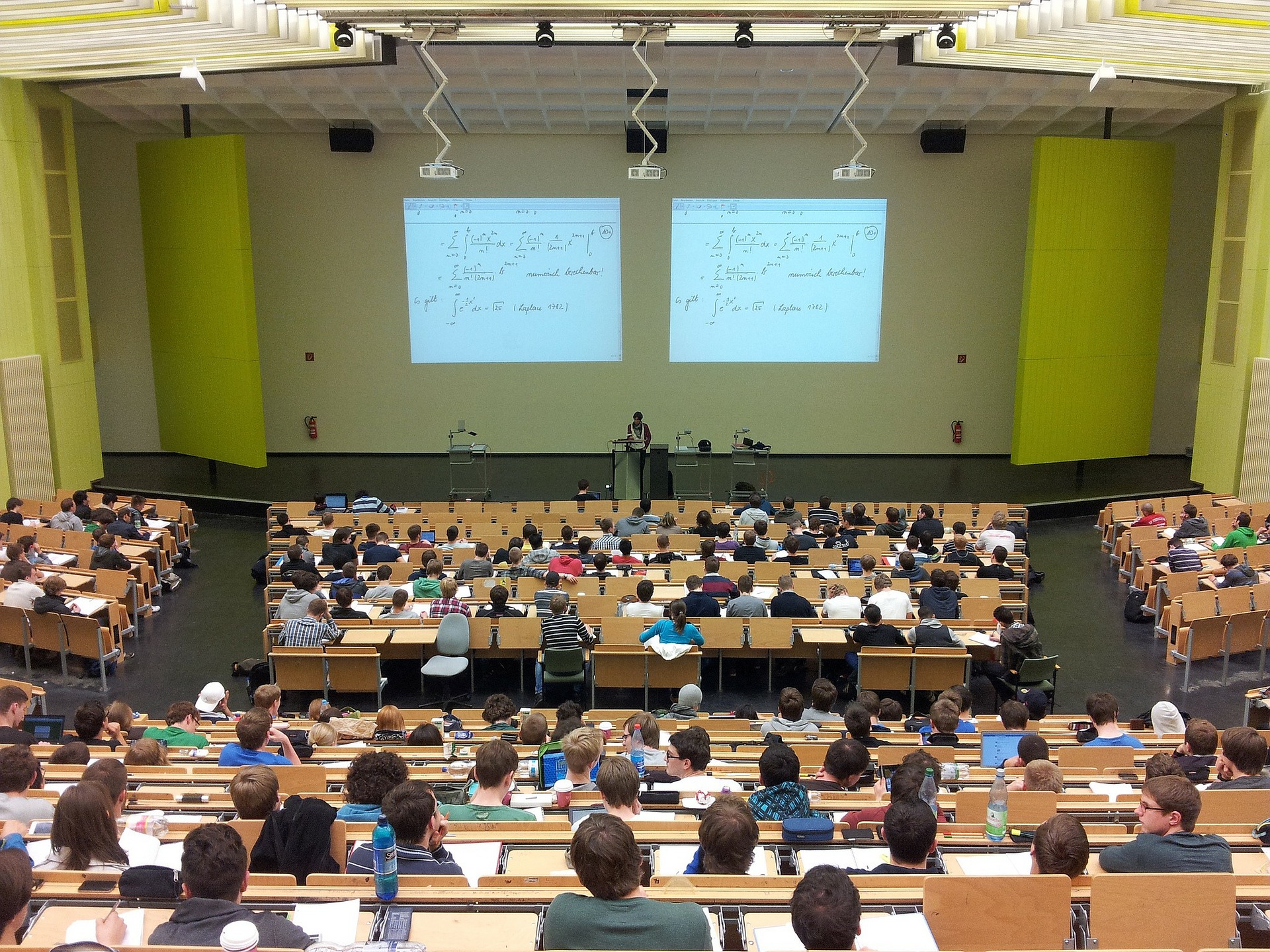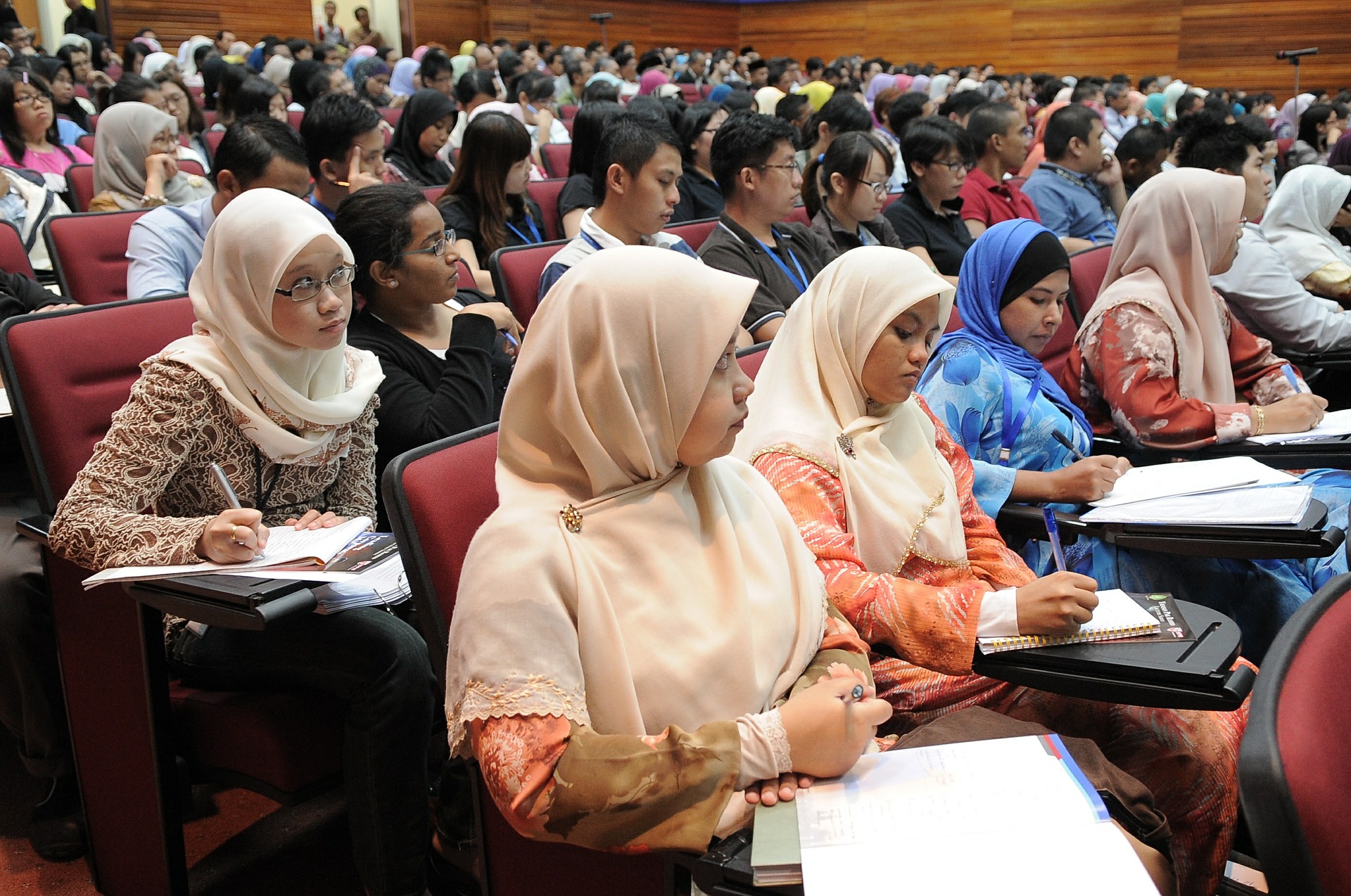Lecture Attendance, Lecture Recordings, and Student Performance: A Complex, but Noteworthy Relationship
By Carolina Kuepper-Tetzel
At university there is an ongoing debate about whether lectures should be recorded and made available to students. In general, students are extremely in favor of this idea. They argue that they can use lecture recordings when revising the content of the lecture – allowing them to go back to the lecture and listen to bits and pieces that they have not fully understood. Lecturers have divided views on that matter: Some embrace the idea of having their lectures recorded as they can see the added value of making such recordings available to students, while others fear that providing recordings will lead to a drop of student attendance in lectures.
Image from Pixabay
Oh, if only there was a study that looked into the relationship between lecture attendance and recordings...You might have guessed it: There is such a study. A brand-new one that just came out. Nordmann, Calder, Bishop, and Comber (1) not only investigated the relationship between lecture attendance and recordings, but – more importantly – examined the effects of these variables on student performance on the final test. Furthermore, they took crucial factors into consideration such as student GPA or whether the student was a non-native speaker. Plus, they examined these variables separately for 1st Year students, 2nd Year students, and 3rd/4th Year students to find out whether the relationships between lecture attendance, recordings, and performance would depend on the students’ educational maturity – a concept that reflects students’ experience with the university system, with successful study strategies, and with sitting exams. Thus, a general maturity that comes with attending university.
The study setup
For an entire semester, students’ attendance in lectures and their use of lecture recordings through the virtual learning environment platform was measured. In addition, demographic data such as native speaker status was assessed, and GPA data was retrieved. In the end, the researchers recorded the final exam performance of all students.
Image from Pixabay
The study findings
So, do students prefer to listen to the lecture recordings and skip the actual lecture? The answer to this question is: No! Good news, right? But let us take a closer look at the more nuanced findings separately for 1st Year, 2nd Year, and 3rd/4th Year students:
1st Year students:
Non-native speakers used lecture recordings more often than native speakers.
Lecture attendance and use of recordings predicted final exam performance, but there was no correlation between attendance and use of recordings. Thus, students did not decide to drop going to lectures if recordings were supplied.
There was an interesting (and quite complex) finding regarding student GPA, attendance, and recording use: It turned out that students with a low GPA benefitted from an increased use of recordings if they had attended many of the lectures as well. However, students with a high GPA only benefitted from an increased use of the recordings if they had attended few lectures. In other words, high achieving students can successfully use lecture recordings to make up for missed lectures, but low achieving students only benefit from using recordings if they use it as supplement to the lecture that they had attended. Another striking finding that was revealed is that students with a high GPA who had attended most of the lectures in person actually performed poorer on the final exam if they had used more of the recordings. It is not clear why this happened, but my speculation is that high-achieving students who attended many lectures already gained a good understanding of the content. These students may have the tendency to overthink and to get lost in detail. Thus, watching recordings later may have led to them getting confused with their initial understanding of the content or missing the bigger picture of the content. At this point, this is my personal speculation only and needs further investigation.
2nd Year students:
Image from Pixabay
Interestingly, in 2nd Year, non-native speakers did not make more use of the recordings than native speakers. The authors speculate that the relationship between recording use and native speaker status in 1st Year may be due to the lower language proficiency at the start of the university studies in non-native speakers and that foreign students make more use of lecture recordings to overcome this shortcoming. However, after the 1st Year, non-native speakers may have caught up showing equal use of the recordings in Year 2 to their native speaker peers.
Again, there was no correlation between attendance and recordings.
This time, attendance itself and recordings itself did not affect final exam performance, but rather had an interactive effect on exam performance: Students who attended fewer lectures benefitted most from using the recordings, but students who attended more lectures benefitted less from using more recordings – this finding seems odd at first, but seems to indicate that the latter students had a hard time comprehending the lecture content.
3rd /4th Year students:
The only variable that predicted final exam performance was student GPA. None of the other variables such as attendance, recording, or native speaker status predicted exam performance in the end.
Putting it all together
Although the findings are quite nuanced and complex, there are quite a few lessons that inform university teaching practice.
When it comes to deciding whether to supply students with lecture recordings, the study shows that in most cases there are no negative consequences of doing so. Importantly, students did not decide to skip lectures because they had access to lecture recordings.
The benefits of having lecture recordings are particularly pronounced during the 1st Year, but are of less importance in later years as students become educationally mature.
During the 1st Year of their studies, non-native speakers made more heavy use of recordings to support their learning than their native speaker peers. However, starting 2nd Year recordings use did not differ between native and non-native speaker students.
How students benefit from using recordings in the 1st Year depends on their GPA and whether they attended the lectures. There is a complex relationship here that is worth noting: Students with low GPA only benefit from using more of the recordings, if they also attended lectures – i.e., if the use the recordings as a supplement to the lectures. Students with high GPA can benefit from using more of the recordings if they missed classes – i.e., higher performing students can substitute attending lectures with recordings.
Image from Pixabay
One last aspect that is worth mentioning is that 1st Year students only watched a fraction of the recorded lectures: Half of the students watched only up to 30 minutes out of possible 20 hours of lecture recordings and on average students watched less than 4 hours of the recordings.
Taken together, these findings have clear practical implications for the learning environment at the university: Provision of lecture recordings does not affect lecture attendance, but instead plays a positive role for non-native speakers in their 1st Year. Furthermore, low and high achieving students benefit from the use of recordings through different processes (supplement versus substitute) depending on whether they attended many or few of the lectures in person. As students progress in their studies, GPA seems to stay as the most important predictor of exam performance – neither attendance or recording use predicted final exam grade. For 1st Year students, where lecture attendance and recordings use were both significant predictors of exam grade, lecture attendance was the stronger predictor.
I think this provides plenty food for thought and a lot to digest regarding lecture attendance, recording use, student abilities, and performance: A complex, but noteworthy relationship indeed
References
(1) Nordmann, E., Calder, C., Bishop, P., Irwin, A., & Comber, D. (2017, November 10). Turn up, tune in, don‘t drop out: The relationship between lecture attendance, use of lecture recordings, and achievement at different levels of study. Retrieved from psyarxiv.com/fd3yj






